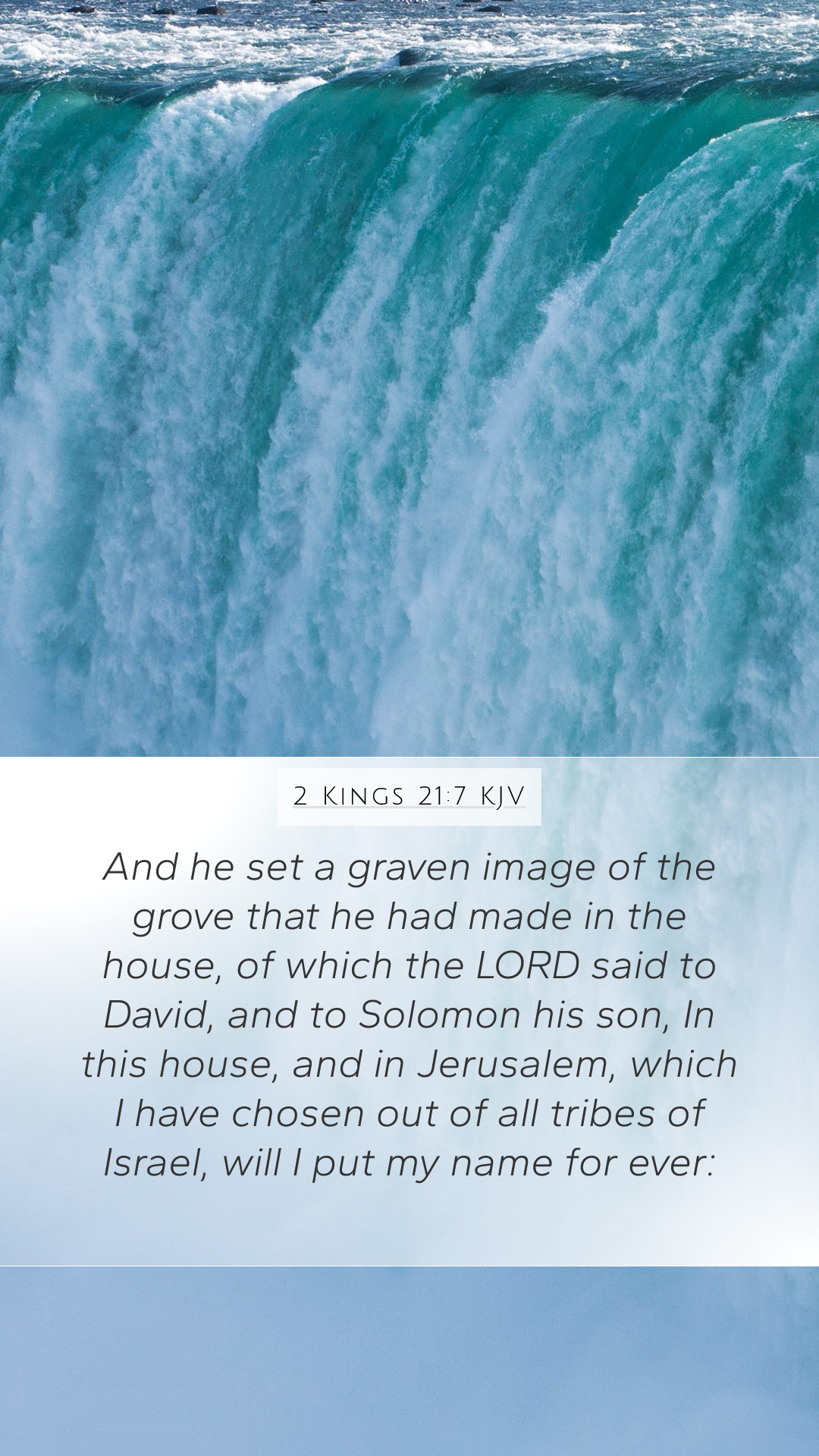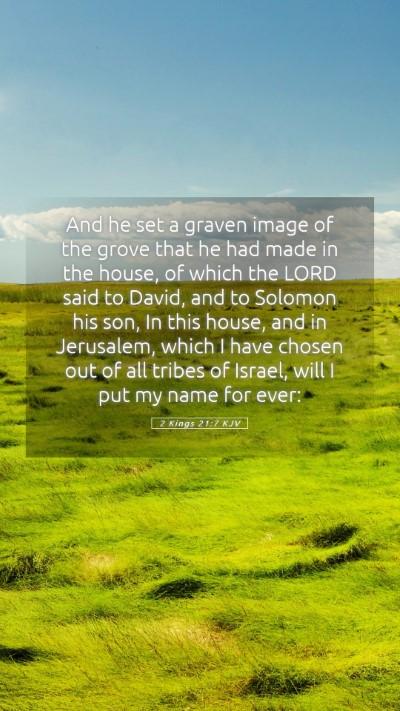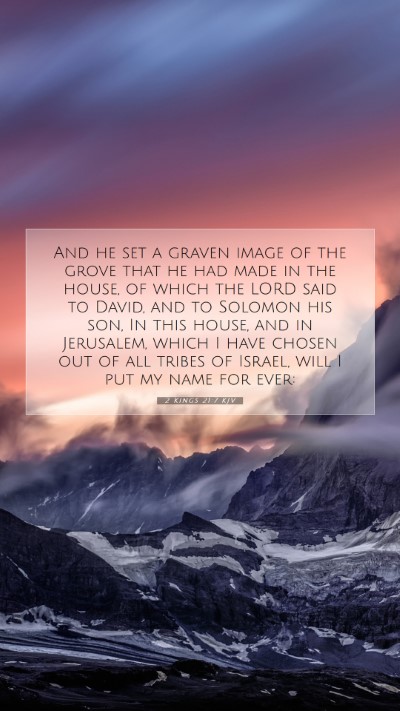Bible Verse Commentary: 2 Kings 21:7
The verse 2 Kings 21:7 states:
"And he set a carved image of the grove that he had made in the house of which the Lord said, 'In Jerusalem will I put my name.'" (2 Kings 21:7, KJV)
This passage details a significant moment in the history of Israel, emphasizing the idolatrous practices introduced by King Manasseh. Below, we have broken down the meaning and implications of this verse using insights from various public domain commentaries.
Contextual Background
2 Kings 21:7 occurs during the reign of King Manasseh, who is known for his idolatry and leading the people of Judah away from Yahweh. This sets the stage for an understanding of the gravity of the actions described in the verse.
Interpretation from Various Commentaries
-
Matthew Henry’s Commentary:
Henry emphasizes the severity of Manasseh’s sins, which included the introduction of idols within the temple. The 'carved image of the grove' signifies a perverse turning away from God’s commandments. By placing this image within a sacred space, Manasseh desecrated the holy name and purpose of the temple, leading the nation into spiritual corruption.
-
Albert Barnes’ Notes:
Barnes explains that the 'grove' refers to the Asherah pole, a common object of worship in Canaanite religion. The decision to house such an idol in the temple, where God’s name was meant to dwell, illustrates the complete disregard Manasseh had for the sanctity of the true worship of God.
-
Adam Clarke’s Commentary:
Clarke discusses the historical implications of this verse, indicating that Manasseh’s actions directly led to divine judgment against Judah. Clarke highlights that God's promise to put His name in Jerusalem would endure, yet Manasseh’s idolatries provoked the Lord to anger, setting the stage for future calamities.
Historical Context
This verse comes at a critical point in Judah's history. Manasseh ruled for fifty-five years, during which he reversed the reforms of his father, Hezekiah. His introduction of idols, particularly the Asherah, signified a blatant rebellion against God's covenant with Israel.
Theological Significance
The implications of this passage extend beyond the immediate historical events. It serves as a warning about the dangers of straying from divine commandments and the corrupting influence of sin. The placement of the idol within the temple symbolizes a profound betrayal of God's trust and sanctity.
Application for Today
In contemporary terms, 2 Kings 21:7 encourages believers to evaluate what idols they might be harboring in their own lives—things that distract from their devotion to God. It prompts a self-examination about the priorities we uphold in place of God’s word and relationship.
Cross References
- 1 Kings 9:3 - God's promise concerning His name in Jerusalem.
- 2 Chronicles 33:1-9 - Further accounts of Manasseh's reign and idolatry.
- Isaiah 1:4 - Israel's rebellion against God as a thematic backdrop to Manasseh's actions.
Conclusion
The examination of 2 Kings 21:7 through the lens of biblical commentary reveals a multifaceted understanding of sin, leadership, and the nature of worship. It challenges readers to reflect on the sanctity of the places and practices in their own lives where God ought to be honored above all else.


